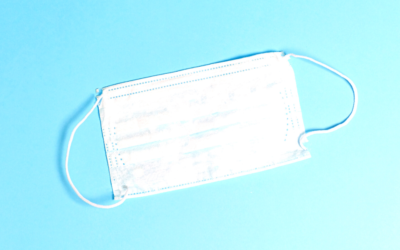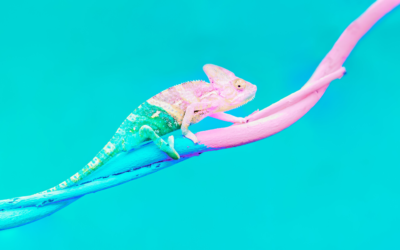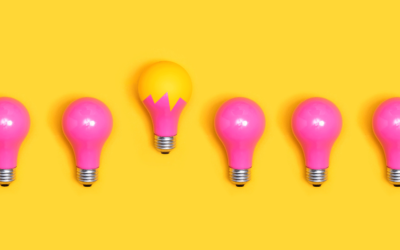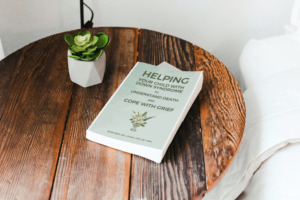Sometimes, these parents know that they themselves have ADHD. Other times, I’m the first one to point out to a parent that she, too, seems to struggle with impulsivity, disorganization, time management, etc.
Whether you’ve known since you were a child that you have ADHD, or if you’re just now starting to connect the dots and realize that maybe ADHD explains a lot of what you struggle with, managing your own ADHD can assume a whole other level of significance once you’re parenting a child who shares your symptoms.
Many of the moms I work with describe that having a kid with ADHD makes them feel more pressure to manage their own symptoms. They exhaust themselves to be as organized as all the other moms seem to be. But they always wind up feeling like they’re failing, or living in a fog that won’t lift.
If you’re like my clients, these experiences give you overwhelming guilt and anxiety. How can your child possibly learn to stay organized if you can’t manage it yourself?
If you’re feeling this way, you’ve likely read articles about the importance of consistency. But if you’re like my clients, you struggle with how to maintain routines once you’ve realized that you need them. That’s why I wrote this post sharing tools that can help you stay disciplined, for those days when the motivation just isn’t there.
Keep reading to learn the 8 weird but effective resources that every mom with ADHD needs to know about.
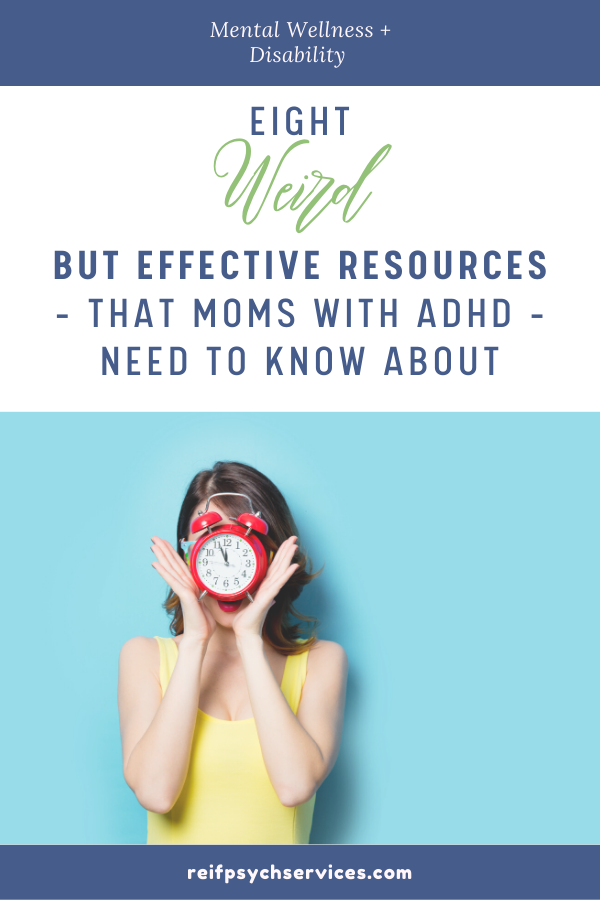
1. AnyList
Moms with ADHD often love having lists to rely on to keep them organized. But many of my clients feel like they are reinventing the wheel when it comes to making lists for:
- Grocery shopping
- Packing
- Ongoing tasks
I love to share the AnyList app with these moms. In this app you can create unlimited lists, and you can share them with others people, like your partner or kids.
You could have one for grocery shopping, one for things to pack on vacation, one for things to do today, and so on.
The beauty is that, once you’ve crossed an item off, you can easily recall it and add it back to your list. So you don’t have to constantly remember what are the common things you need to buy for school lunches. You can just uncross “bread”, “sandwich bags”, and “peanut butter”. They’ll be on your list the next time you go to the grocery store.
So you can add things you to need to your Target list, and then simply check off your list the next time you’re at the store. No more of that awful feeling of “oh, I was just at Target, how did I forget to buy paper towels?”
And if you struggle more with impulsive shopping and not forgetting needed items? Try Instacart!
2. ADD-Friendly ways to organize your life
The organizational tools and strategies suggested are fantastic.
But what most of my counseling clients love about this book is the validation that they get from reading it.
So many clients have told me that they felt like the book was written just for them! Nearly every example in the book relates to women juggling household, parenting, and work responsibilities.
The authors get real about addressing why the strategies that work for everyone else just don’t work for the ADHD brain. You’ll get much more than helpful organizing tips from reading this book. You’ll be reminded that your struggles are real, hard, and, most importantly, that you’re not the only one facing them.
3. A vibrating reminder wearable
- Leave to pick the kids up from school
- Take a medication (or to be sure that your child, cat, or anyone else takes theirs)
- Check your calendar for the upcoming week
and so much more.
Some moms will set reminders to go off at random times throughout the day. When the alarm goes off, they simply ask themselves if they are still on task.
Pro tip: You may want to consider getting a similar device for your child. This can help them to build independence in managing their own responsibilities. They might use alarms to remind them to brush their teeth, eat a snack, or take medication. This can definitely help to reduce power struggles between you and your child!
4. A recycling bin
Most of the moms with ADHD who I see for counseling have amassed a huge collection of
- Planners
- Organizers
- Calendars
- Printables
- Checklists
- Fridge pads
And so on.
It’s time to get rid of them all.
Don’t beat yourself up over the money that you spent on these products.
Don’t make yet another promise yourself that you’re going to start using them. Because we both know this isn’t true and you’ll only wind up feeling guilty and worse about yourself.
Get rid of them. Because they represent a myth that you’re holding on to that’s only making you feel worse about yourself.
Some would argue that the collection of organizers is just a reflection of the impulsivity and poor executive function associated with ADHD. But then wouldn’t people with ADHD have too much of everything that might be a good thing? Some people may have a lot of travel mugs, or a lot of pairs of socks, but that doesn’t tend to be consistent across all people with ADHD. But the organizer collection is.
Why?
The constant purchasing of organizational tools reflects that you’re holding on to a false belief. That belief is that if you could just buy the right planner, then you’d be able to stay ‘on top of things’.
That there’s a cure-all system out there, and that you can find it if you spend enough time and money looking for it.
The truth is that the system that works is the one that you’ll commit to using. It has little to do with the layout or features of the product. It has everything to do with your discipline in using it regularly.
Commit to using one system, one product that works for you. It doesn’t matter what it is.
Having the ‘right organizer’ won’t make things easier. Having the discipline to use the one organizer you have is what will make things easier.
You can even use some of the other resources on this list to support you. Create an item on your AnyList list for Target that says “DO NOT buy any new calendars or planners”. Then you’ll remember your commitment every time you go shopping.
Feel like you have a calendar but never remember to check it? Set a reminder on your wearable that prompts you to check it at the same time every day.
5. A power bank
A few years ago I worked with one mom with ADHD who was like clockwork.
Every week she would show up about 10 minutes late for her session.
Flustered, she would apologize:
“I’m so sorry I was going to call you to tell you I was running late, but my phone died.”
Then she’d rummage in her purse, looking for a charger that was never there.
Since then, I’ve started keeping a small collection of charging cords in my office for clients to use.
But you can avoid the anxiety of being without a fully charged phone by buying a power bank.
6. A Tile
So that you don’t lose your new power bank (or your keys, phone, wallet, etc.) pick up a few tile reminders.
They’ll help you to keep track of those items that you’re forever misplacing.
Go ahead and grab an extra for your child’s backpack and coat too.
What if you don’t lose your keys, but you instead lock yourself out of your car? Try a magnetic key holder that you can attach under the car.
7. An Alexa-enabled device
Many of the moms with ADHD I work with describe feeling like they are constantly in motion. They feel like they never stay in one place long enough to complete a task.
Listening to a podcast or audiobook, or playing a trivia game on an Alexa device can help you stay engaged and focused on your task.
Suppose you are folding laundry in your bedroom and remember that there’s a bill due tomorrow. Instead of getting up and going to the office to pay it, you could tell Alexa to remind you about the bill in 20 minutes. By that time you’ll having finished folding the laundry, and can move on to another room.
Find that you get sucked into a lengthy social media scroll when you just wanted to check the news or the weather? Ask Alexa for the specific information you want instead of opening your phone.
Get distracted from making dinner by your kids asking for homework help? Ask Alexa how to spell that word or check that math problem instead, while you keep cooking.
8. The question “What else could be true?”
So many of the moms with ADHD that I work with feel overwhelming guilt.
Maybe you feel like they do.
You compare yourself to friends and other moms on social media. You wonder why everything is harder for you and why you can’t just stick with things. I encourage you to ask yourself
“What else could be true?”
Right now you’re stuck believing that it’s easy for everyone else, and that you’re wrong to feel the way you do.
What else could be true?
It could be true that all those other moms have their own struggles, but that they choose not to share them. A common question that people ask in therapy is “Why am I the only one who feels this way?” Think about that for a minute.
It could be true that those other moms value different things than you do. Maybe that mom’s hair and nails are always perfectly done and yours aren’t. But perhaps her kids haven’t gone to the dentist in two years, while yours never miss a check-up. Some values are easier to recognize from outward appearance.
If you never question your assumptions, you can easily get stuck believing that you are different from everyone else in a way that’s wrong.
But the truth is, no one else has your exact same abilities, values, and experience. There is no right way to do motherhood, work, exercise or anything else. There is only the way to do it that’s right for you. You can look to others for guidance and support as you figure out your way. But assuming that everyone else has it figured out and you don’t will only serve to make you feel less self-assured and more miserable.
Summary
It’s easy to feel overwhelmed if you and your child both have ADHD. The stakes can feel so high; not only do you need to get things right for your own sake, but you want to be sure you set your child up for success, too.
You should know that it is possible to find new ways to focus and accomplish what you need to, while at the same time accepting and working with the aspects of yourself that you cannot change.




